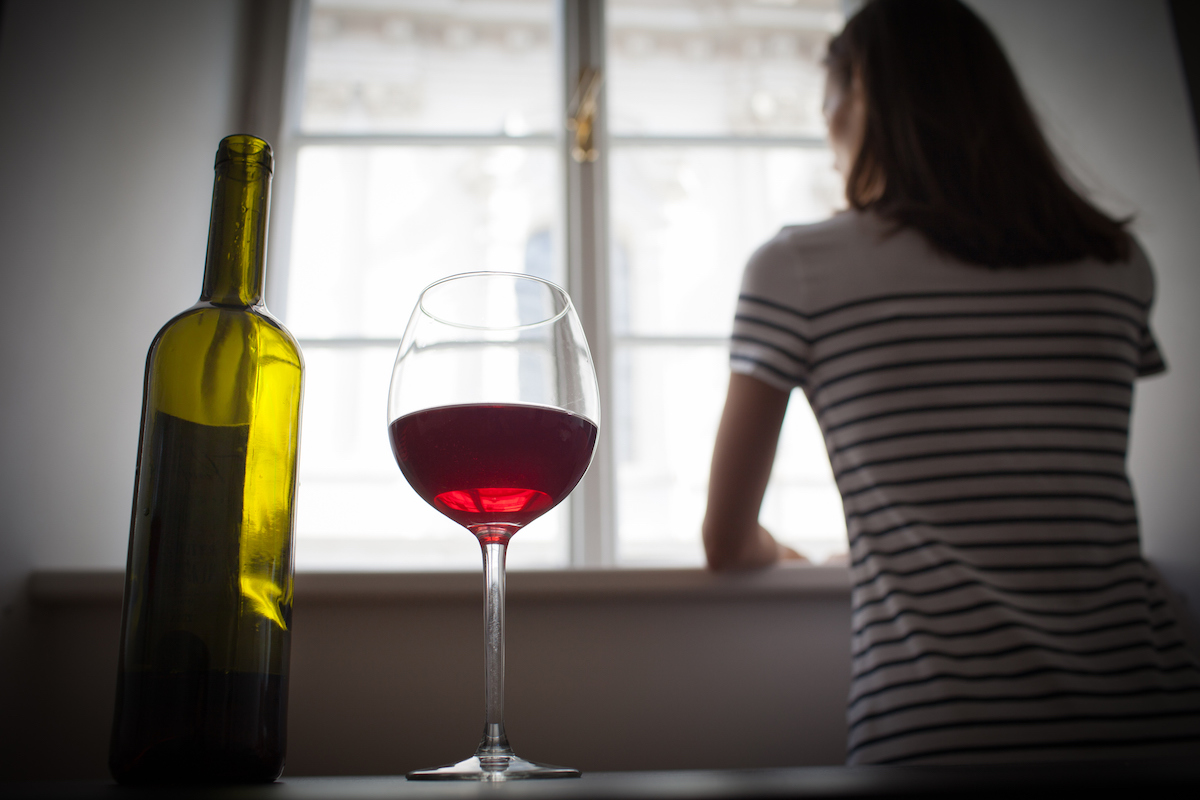<< Back
Binge Drinking Up 41 Percent Among Women Since COVID-19

October 01, 2020
Women have been turning to alcohol for relief from the COVID-19 pandemic at alarming rates, with a 41 percent increase in heavy, or binge, drinking episodes since March.
Alcohol consumption for people over age 30 is up in general, with a 14 percent overall increase, according to research published in the Journal of the American Medical Association Network Open. Conducted by the RAND Corp. and supported by the National Institute of Alcohol Abuse and Alcoholism (NIAAA), the research included interviews with more than 1,500 adults across the United States between late May and early June, in the midst of the pandemic’s first peak.
“Alcohol is a familiar and culturally acceptable source of relief from stress and anxiety,” said Dr. J. Craig Allen, medical director of Rushford, part of the Hartford HealthCare Behavioral Health Network. “However, subjective symptom improvement from an addictive substance is problematic. With alcohol, this relationship can lead to harmful use and development of full-blown depressive, anxiety and substance use disorders.”
Study participants were asked about any changes in alcohol consumption between spring 2019 and spring 2020. Both men and women indicated increased episodes of binge drinking, which is defined as five or more drinks for men and four or more for women in just a few hours. Women participants reported an alarming increase of almost 50 percent.
The survey also asked participants to describe if and how their alcohol consumption has affected their lives, posing 15 such yes-and-no statements, such as:
- “I have been unhappy because of my drinking.”
- “I have felt guilty or ashamed because of my drinking”
- “My family has been hurt by my drinking.”
The average number of affirmative answers nearly doubled for women, indicating a drastic impact on their lives. Men gave an average of five affirmative answers, compared to four in 2019.
The information is not surprising, according to Dr. Allen, who added that, “alcohol affects every organ in the body and increased consumption is associated with negative changes in mood, anxiety, sleep and relationships and overall poorer physical health.”
Nielsen data from March showed a 54-percent increase in alcohol sales and a 524-percent increase in online alcohol sales.
NIAAA Director Dr. George Koob said traumatic events trigger increases in alcohol consumption.
“There is a history with events like 911, Hurricane Katrina, earthquakes and other catastrophes, that people then drink more, post trauma,” he said. “Alcohol is a very effective painkiller. But when it wears off, that pain comes back with a vengeance.”
The World Health Organization spotted the trouble early, warning that increased alcohol use could exacerbate health issues and risk-taking behaviors.